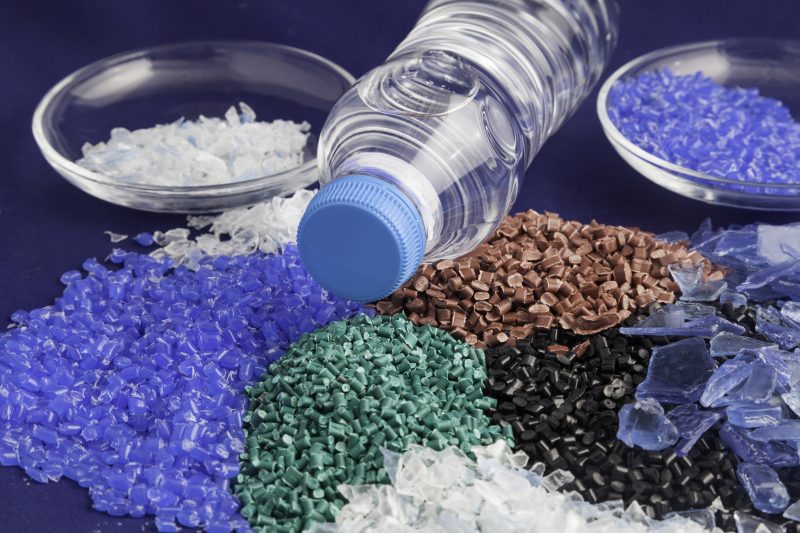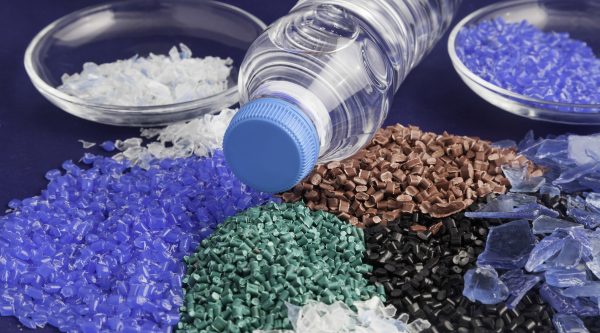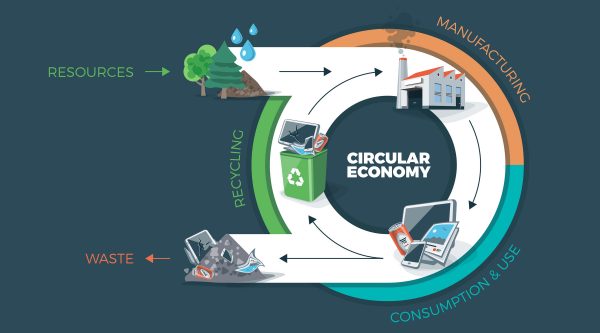
This site
is mobile
responsive

Plastics are lightweight and durable materials, which can readily be moulded into a variety of products that can be used in a wide range of applications. In the modern economy, plastics have become ubiquitous material that plays a critical role in the growth of major industries such as automotive, medical devices, construction, electronics and packaging. Unfortunately, the majority of the produced plastics annually are used to make disposable items of packaging or other short-lived products. In addition, the durability of the polymers involved result in substantial amounts of plastics accumulating as debris in landfills and natural habitats worldwide.
Hence, the time has come to deliberate the impact of this polymer-based material on the environment and humankind. The New Plastics Economy unveiled at the World Economic Forum 2018 is a vision of a circular economy for plastics. It focuses on the need to develop a radical approach to use plastics sustainably.
Notably, the percentage of plastic that can be fully recycled can be increased when manufacturers of packaged goods minimise the mixing of packaging materials and eliminate contaminants. The use of biodegradable plastics or plastics which can be organically recycled or composted is increasing for specific short-lived packaging applications.
In line with this aspiration, recycling of plastics is crucial to reduce the impact and represent one of the most dynamic areas in the plastics industry today. Recycling provides opportunities to reduce oil reliance, carbon dioxide emissions and the quantities of waste requiring disposal.
Therefore, it is not surprising that the recycling of local plastic waste is encouraged by the Government through the Malaysian Investment Development Authority (MIDA). Incentives, namely the Pioneer Status (PS) or Investment Tax Allowance (ITA) are offered to further Malaysia’s priority for sustainable waste management practices. As of December 2018, a total of 55 plastics recycling projects are in operation with total investments of RM 199.5 million. These projects have created 3,341 jobs in the country.
In Malaysia, plastic pollution is relatively low. However, this has changed with China’s restriction on the importation of plastic waste, as well as other recyclable items in 2018. This action has directly affected plastic waste exporters, especially from developed nations as they struggled to find other places to export their waste. Subsequently, Malaysia became among the top destinations for plastics scrap exporters in South East Asia.
The importation of plastics waste saw a significant increase, from RM241.7 million in 2015 to RM739.8 million in 2018. Unsurprisingly, an influx of factories opened up in Malaysia to handle the rise of plastic wastes. Some were reported to be operating without any operational licence, using low-end technology and environmentally harmful methods of disposal.
To address this problem head-on, the Government undertook tangible actions to protect the environment of the country. Given that the importation of plastic waste is subject to the Approved Permit (AP) from the National Solid Waste Management Department, AP issuance for plastic waste was frozen between July to October 2018 following discoveries of AP discrepancies and pollution stemming from illegal plastic waste processing factories.
Simultaneously, the Government engaged stakeholders to review new requirements prior to the issuance of AP for plastic waste. As of May 2019, a total of 62 companies have been approved with AP for the importation of plastic scrap and these companies are closely monitored.
To ensure that Malaysia does not become a dumping ground for plastics waste from other countries which will harm the environment and quality of people’s well-being, the Government has begun sending back plastics waste to its country of origin starting this year.
Moving forward, Malaysia needs to move gradually towards developing established national waste collection criteria and standards. MIDA will continue to work with relevant government authorities to discuss a robust, effective regulatory framework for the recycling of plastic industry and Malaysia’s role in the circular economy where the redeployment and reuse of resources is a crucial fundamental principle.
The Government, together with the stakeholders in the plastics economy need to close their knowledge gaps on the long-term effects of plastics. Industry players, regulators and even academia with coordinated efforts have to define research and innovation agendas within the industry. Additionally, there is a need to also focus on operational efficiency and adaptation of cutting edge technology for reprocessing of plastics.
With global demand for plastic products forecasted to amount to 200 million tons by 2020, whereby the majority of the demand will be from the transportation industry, particularly in automotive and aerospace, while electronics, medical and packaging industry will provide sustenance to the plastic compounding markets, the plastics industry is undoubtedly a promising one. As such, Malaysia can indeed support the creation of a functioning market for recycled and sustainable plastics.
